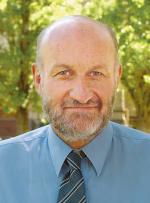Developing the foundations for a healthy society
 Health Sciences Health Sciences
The healthy development of Australia's next generation and flow-on effects for the wellbeing of our society are at the heart of multidisciplinary research initiative, Healthy Development Adelaide (HDA). HDA is a research cluster of the University of Adelaide started by Professor Robert Norman and Professor Caroline McMillen in June 2004 as part the university's response to the National Health and Medical Research Council's (NHMRC) priority to provide everyone with a healthy start to life. The resulting focus encompasses research opportunities from preconception right through to adolescence. "It is about achieving better outcomes for children at all stages of development and in all areas, medical, physical, social and psychological, while improving the profile of developmental research and assisting researchers to attract more funding for research in those areas," Professor McMillen said. The "cluster" concept refers to building research density through bringing cross-disciplinary researchers together and fostering links with industry, health service providers, government departments and the community. HDA has more than 90 members from the five university faculties representing more than 20 disciplines ranging from biochemistry and demographics to law and paediatrics, and links have also been forged with various Child and Youth Health Research organisations, industry bodies, community groups and service providers in South Australia. Professor McMillen said these connections enabled professionals with complementary skills in healthy development to come together and begin to collaborate, and this has already resulted in some cluster members securing very large research grants. "It is about linking at every dimension possible from research level to industry level," she said. Professor Norman said major successes include links that have been formed with the State Government. "It has given us a new visibility and it has been very good to suddenly lift the veil on who is out there," he said. "We have been able to build a picture of current health research and development and where everybody sits at a State level. "It gives us a picture of the whole body rather than one particular organ and allows the government to plan services better using skills and expertise that may not have been obvious before." Professor Norman said one of Adelaide's unique features was its strength in healthy development research and HDA was a means of further promoting this image while enhancing the quality of research occurring here. This could be achieved through other key objectives of the HDA related to attracting more students to undertake multi-disciplinary projects, ensuring they were offered top-level training and building networks between emerging and established researchers, he said. The University of Adelaide's other research clusters are Healthy Ageing, Water, Defence and Security. For further details on the Healthy Development Adelaide cluster, visit www.adelaide.edu.au/hda Story by Lisa Toole HDA Oration One of Australia's foremost demographers, Professor Graeme Hugo, will give the inaugural Healthy Development Adelaide Oration on Thursday, May 26 at the State Library. Entry is free and the public is welcome. This is followed the next day (Friday, May 27) by HDA's inaugural Research Day at Level 4, Union House, University of Adelaide. For information and registration, call Anne Jurisevic on 8222 6878, or email anne.jurisevic@adelaide.edu.au
|






